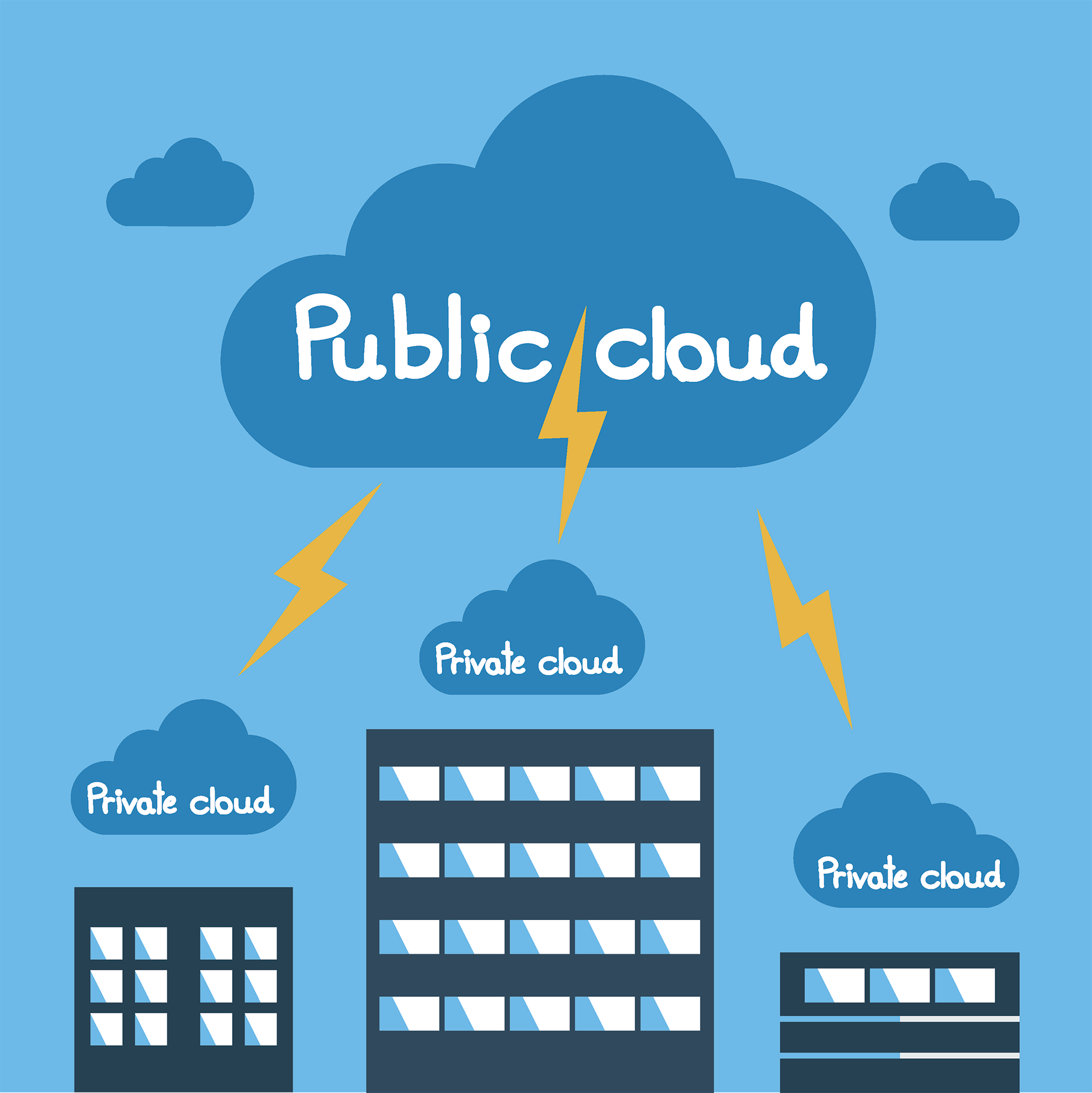Despite the high-in-the-sky image conjured by the phrase “cloud computing,” documents in the cloud are not floating in a mystical ether. Instead, they’re being saved inside vaults of servers connected with snaking cables and blinking lights. If a business rents a portion of a server that’s shared with others, it’s a public cloud; if a business rents the entire server, that’s a private cloud. Businesses who are just starting to consider cloud-based IT services might be overwhelmed by all their options, including whether to go with a public or private cloud service.
Here are three key differences to help simplify the private cloud vs public cloud decision:
1. Public cloud solutions are generally more cost-effective than private cloud
Just like taking a public bus is generally a more cost-effective way to get from one place to another than hiring a limousine, the public cloud option is more affordable for most businesses and still gets the job done. Tech Target describes public cloud storage services as cost-effective because “organizations pay only for the resources they use.”
2. Private cloud solutions are generally more secure than public cloud
Although cloud security continues to evolve rapidly, there is less risk storing data on hardware that only your organization can access, compared to hardware shared with numerous organizations. Businesses considering using a public cloud should ask the vendor about data encryption, access controls, and other methods the vendor uses to ensure data security.
3. Private cloud solutions are better for large businesses with varied computing needs
A small business that’s looking for cloud solutions primarily to back up data won’t need the massive resources of a private cloud. However, large corporations with computing needs that are difficult to predict may prefer a private cloud for maximum flexibility.
Interested in learning more? Please contact us.




